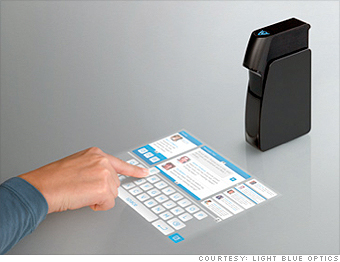The second good thing Congress has done in the last year
The other good thing Congress did was forcing TV networks to stop cranking up the volume when going to commercials.
After investigation, AT&T, Verizon agree to stop ‘cramming’ phone bills
By Bob Sullivan
Verizon and AT&T have agreed to stop “cramming” consumers’ telephone bills with unauthorized third-party charges, Sen. Jay Rockefeller announced Wednesday. The move comes after a Senate investigation revealed last year that consumers were hit with $10 billion in fraudulent charges due to the practice over the past five years.
A TODAY show/msnbc.com investigation in July revealed how extensive and frustrating cramming is, with maddening, mysterious $10 or $20 charges appearing every month on millions of Americans ‘phone bills.
The investigation relied on a report commissioned by Rockefeller that found that three telecom firms – — Verizon, AT&T and CenturyLink/Quest — earned $650 million as their cut of cramming charges levied by third-parties since 2006.
“AT&T made the right decision to end cramming by August,” the West Virginia Democrat’s office said in a statement on Wednesday. “Something had to be done. And while the decisions of AT&T and Verizon are a step in the right direction, I still believe we need to pass a bill that bans this abusive practice once and for all.”
“AT&T has decided to discontinue most third-party billing on our customers’ landline accounts,” Michael Balmoris, an AT&T spokesman, said in a statement to msnbc.com. “We currently receive cramming complaints for only about one out of every thousand bills that contain third-party charges. However, due to continued concern over the possibility of unauthorized charges, we have decided to take this additional step and eliminate third-party billing for most types of services.”
Verizon spokesman Bill Kula also confirmed the change, saying in an email: “On March 19, Verizon’s wireline business began notifying its billing aggregators (or “clearinghouses”) and carriers that it is going to cease providing third-party billing services for so-called ‘miscellaneous’ or ‘enhanced’ services. All billing of those services will be phased out by the end of 2012. … Verizon wireline will continue to provide billing services for third party charges that generally relate to telecommunications or information services that use our network.”
Separately, Verizon earlier this month agreed to settle aclass-action lawsuit related to cramming, and agreed to refund 100 percent of victims’ money for any unauthorized third-party charges consumers suffered from April 27, 2005, through Feb. 28, 2012.
Cramming has vexed consumers and generated mountains of complaints since 1995, when land line providers began making it easy for third-party firms to sell add-on services like voice mail through local phone bills.
The problem is it’s too easy for third parties to attach unwanted items to consumers’ bills: Previous investigations have found firms frequently trick consumers into signing up using sweepstakes entries or cashing small checks that also serve as authorization forms. In other cases, the third-party firms simply lie about getting authorization, a scam called “phantom billing.” Last year, Illinois Attorney General Lisa Madigan testified that usage rates for the unwanted services could be as low as 1 percent.
“Committee staff has found hundreds of egregious examples of cramming,” the Rockefeller report found. “Third-party vendors have enrolled deceased persons in their so-called services and charged family members’ telephone bills for it. They have charged telephone lines dedicated to fire alarms, security systems, bank vaults, elevators and 911 systems. Senior citizens’ telephones have been enrolled in web-hosting services, even though they have never used. A children‘s hospital was charged for a celebrity tracker e-mail service that provided daily celebrity news feeds, photo, and videos. A national bank‘s telephone lines were charged for credit protection plans.”
Perhaps nothing illustrates how out of control cramming had become as well as AT&T’s own victimization.
“Committee staff confirmed that third-party vendors associated with one hub company crammed at least 80 of AT&T‘s own telephone lines with charges for services such as voicemail, sometimes for periods as long as 18 months,” the report said.






